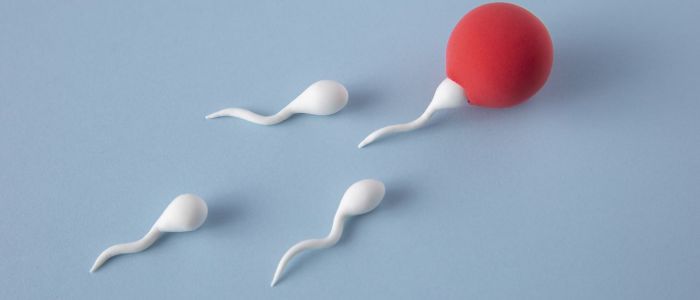Your sleep patterns might be affecting your fertility journey more than you realize. Quality sleep isn't just about feeling rested—it's a crucial factor that influences hormone production, egg quality, sperm health, and your overall reproductive success.
How Sleep Directly Affects Your Fertility
When you're trying to conceive, every aspect of your health matters. Sleep quality plays a fundamental role in your reproductive system's ability to function optimally. During deep sleep, your body produces essential hormones that regulate ovulation, sperm production, and the delicate balance needed for conception.
Poor sleep disrupts your circadian rhythm, which controls the release of reproductive hormones like luteinizing hormone (LH), follicle-stimulating hormone (FSH), and melatonin. These hormones work together to ensure proper egg maturation, ovulation timing, and sperm quality.
| Sleep Duration | Fertility Impact | Hormone Effects |
|---|---|---|
| Less than 6 hours | Reduced conception rates by 20% | Decreased LH and FSH production |
| 6-8 hours | Optimal fertility window | Balanced hormone production |
| More than 9 hours | May indicate underlying issues | Potential insulin resistance |
Research shows that women who sleep less than six hours per night have significantly lower pregnancy rates during IVF treatment compared to those getting adequate rest. The connection between sleep and fertility is so strong that addressing sleep issues often becomes part of comprehensive fertility treatment plans.
Sleep's Impact on Female Fertility
For women, sleep quality directly influences several key aspects of reproductive health. Your menstrual cycle, egg quality, and hormone balance all depend on consistent, restorative sleep patterns.
Menstrual Cycle Regulation
Sleep disruption can cause irregular periods, making it difficult to predict ovulation. Women working night shifts or experiencing chronic sleep deprivation often report cycle irregularities that can complicate conception efforts.
The hormone melatonin, produced during darkness, helps regulate your internal clock and supports healthy egg development. When sleep patterns are disrupted, melatonin production decreases, potentially affecting egg quality and ovulation timing.
| Sleep Factor | Impact on Female Fertility | Recommended Action |
|---|---|---|
| Sleep timing | Affects hormone release patterns | Maintain consistent bedtime |
| Sleep duration | Influences egg maturation | Aim for 7-8 hours nightly |
| Sleep quality | Affects stress hormone levels | Create optimal sleep environment |
| Light exposure | Disrupts melatonin production | Minimize blue light before bed |
Stress and Sleep Connection
Poor sleep increases cortisol levels, which can interfere with reproductive hormones. High cortisol can suppress ovulation and reduce the chances of successful implantation. Managing stress and improving sleep quality often go hand in hand in fertility treatment.
Sleep's Effect on Male Fertility
Men's fertility is equally affected by sleep quality. Testosterone production, sperm count, and sperm quality all depend on adequate rest. Most testosterone production occurs during sleep, particularly during REM cycles.
Studies indicate that men who sleep less than six hours per night have a 25% reduction in sperm concentration compared to those getting eight hours of sleep. Sleep deprivation also affects sperm motility and DNA integrity, crucial factors for successful conception.
| Sleep Issue | Male Fertility Impact | Improvement Strategy |
|---|---|---|
| Insufficient sleep | Reduced testosterone by 15% | Prioritize 7-9 hours nightly |
| Poor sleep quality | Decreased sperm motility | Address sleep disorders |
| Irregular sleep schedule | Disrupted hormone cycles | Maintain consistent timing |
| Sleep apnea | Significantly reduced fertility | Seek medical evaluation |
Sleep apnea deserves special attention as it affects up to 24% of men and can severely impact fertility. The condition causes frequent sleep interruptions, leading to decreased oxygen levels and hormonal disruption. Treating sleep apnea often results in improved sperm quality and fertility outcomes.
Sleep Disorders and Fertility Treatment Success
When you're undergoing fertility treatments like IUI or IVF, sleep quality becomes even more critical. The medications used in fertility treatments can affect sleep patterns, while poor sleep can reduce treatment effectiveness.
Common Sleep Challenges During Treatment
Fertility medications, particularly those containing hormones, can disrupt normal sleep patterns. Many patients report difficulty falling asleep, frequent awakening, or changes in sleep quality during treatment cycles.
The emotional stress of fertility treatment can also impact sleep. Anxiety about treatment outcomes, financial concerns, and relationship stress all contribute to sleep difficulties that can affect treatment success.
Optimizing Sleep During Fertility Treatment
Creating a sleep-friendly environment becomes crucial during fertility treatment. This includes maintaining consistent sleep schedules, even when treatment appointments disrupt normal routines.
| Treatment Phase | Sleep Considerations | Optimization Tips |
|---|---|---|
| Ovarian stimulation | Hormone fluctuations affect sleep | Maintain cool, dark environment |
| Egg retrieval | Procedure anxiety disrupts rest | Practice relaxation techniques |
| Embryo transfer | Stress about outcomes | Gentle sleep aids if approved |
| Two-week wait | Anxiety peaks affect sleep | Mindfulness and support groups |
Practical Sleep Improvement Strategies
Improving sleep quality doesn't require dramatic lifestyle changes. Small, consistent adjustments can significantly impact both sleep and fertility outcomes.
Sleep Hygiene Fundamentals
Establishing good sleep hygiene creates the foundation for better rest and improved fertility. Your bedroom environment, pre-sleep routine, and daily habits all contribute to sleep quality.
Temperature control is particularly important for fertility. Keeping your bedroom between 65-68°F (18-20°C) supports both quality sleep and optimal reproductive function. Excessive heat can negatively impact sperm production and egg quality.
| Sleep Hygiene Factor | Fertility Benefit | Implementation |
|---|---|---|
| Consistent bedtime | Regulates hormone cycles | Same time nightly, even weekends |
| Dark environment | Supports melatonin production | Blackout curtains, eye masks |
| Cool temperature | Optimal for sperm and egg health | 65-68°F bedroom temperature |
| No screens before bed | Prevents hormone disruption | Digital sunset 1 hour before sleep |
Nutrition and Sleep Connection
What you eat and when you eat it affects both sleep quality and fertility. Certain nutrients support both restful sleep and reproductive health, while others can be disruptive.
Foods rich in tryptophan, magnesium, and complex carbohydrates can promote better sleep. These same nutrients often support reproductive health, creating a beneficial cycle for fertility. Consider incorporating fertility-supporting foods that also promote better sleep.
When to Seek Professional Help
Sometimes sleep issues require professional intervention, especially when they're significantly impacting your fertility journey. Recognizing when to seek help can prevent prolonged fertility challenges.
Sleep Disorders Affecting Fertility
Certain sleep disorders have particularly strong connections to fertility problems. Sleep apnea, restless leg syndrome, and chronic insomnia can all significantly impact reproductive health.
Sleep apnea affects hormone production and can lead to insulin resistance, which impacts fertility in both men and women. If you snore loudly, experience daytime fatigue, or have been told you stop breathing during sleep, evaluation for sleep apnea is important.
| Sleep Disorder | Fertility Impact | Treatment Approach |
|---|---|---|
| Sleep apnea | Hormonal disruption, reduced fertility | CPAP therapy, weight management |
| Chronic insomnia | Stress hormone elevation | Cognitive behavioral therapy |
| Restless leg syndrome | Sleep fragmentation | Iron supplementation, medication |
| Shift work disorder | Circadian rhythm disruption | Light therapy, schedule optimization |
Integrating Sleep Support with Fertility Treatment
At Avida Fertility, we understand that successful fertility treatment requires addressing all aspects of your health, including sleep quality. Our comprehensive approach includes evaluating sleep patterns as part of your fertility assessment.
We work with sleep specialists when necessary and can recommend safe sleep aids during treatment cycles. Our team recognizes that lifestyle factors like sleep are just as important as medical interventions for achieving pregnancy success.
Sleep and Specific Fertility Conditions
Certain fertility conditions have particular relationships with sleep quality. Understanding these connections helps optimize treatment approaches.
PCOS and Sleep
Women with polycystic ovary syndrome (PCOS) often experience sleep difficulties, including sleep apnea and insomnia. Poor sleep can worsen insulin resistance, a key component of PCOS, creating a cycle that affects fertility.
Improving sleep quality in PCOS patients often leads to better hormone balance and improved response to fertility treatments. Weight management, which benefits both PCOS and sleep quality, becomes particularly important.
Endometriosis and Sleep
Chronic pain from endometriosis frequently disrupts sleep, while poor sleep can increase pain sensitivity. This creates a challenging cycle that can impact fertility treatment success.
Managing pain effectively to improve sleep often requires a multidisciplinary approach, including pain management specialists alongside fertility treatment.
Sleep Optimization During Different Treatment Phases
Each phase of fertility treatment presents unique sleep challenges and opportunities for optimization. Understanding what to expect helps you prepare and maintain better sleep throughout your journey.
Pre-Treatment Preparation
Before beginning fertility treatment, establishing good sleep habits creates a strong foundation. This preparation phase is ideal for addressing any existing sleep disorders and optimizing your sleep environment.
Consider this time to experiment with relaxation techniques, adjust your bedroom setup, and establish routines that you can maintain throughout treatment. Good sleep habits established before treatment often persist and benefit you throughout the process.
During Active Treatment
Active treatment phases may disrupt normal sleep patterns due to medication schedules, monitoring appointments, and emotional stress. Flexibility while maintaining core sleep principles becomes important.
Some fertility medications are best taken at specific times, which might affect your normal routine. Work with your treatment team to find schedules that support both treatment effectiveness and sleep quality.
| Treatment Consideration | Sleep Impact | Management Strategy |
|---|---|---|
| Early morning monitoring | Disrupted sleep schedule | Adjust bedtime accordingly |
| Evening medications | Potential sleep interference | Time with dinner if possible |
| Procedure anxiety | Difficulty falling asleep | Relaxation techniques, support |
| Hormone fluctuations | Sleep quality changes | Environmental optimization |
The Role of Partners in Sleep and Fertility
Your partner's sleep quality affects not only their own fertility but can impact yours as well. Snoring, different sleep schedules, and sleep disorders can disrupt both partners' rest.
Creating a sleep environment that works for both partners sometimes requires compromise and creativity. Separate beds aren't uncommon during fertility treatment if sleep quality is significantly impacted by a partner's sleep issues.
Both partners addressing sleep quality together often leads to better outcomes. This includes coordinating bedtimes, creating phone-free zones, and supporting each other's sleep improvement efforts.
Technology and Sleep Tracking
Modern technology offers tools to help monitor and improve sleep quality during your fertility journey. Sleep tracking devices and apps can provide valuable insights into your sleep patterns and their relationship to your cycle.
However, it's important not to become obsessive about sleep metrics, as this can create additional stress that interferes with rest. Use technology as a tool for awareness rather than a source of anxiety.
Some fertility apps now integrate sleep tracking with cycle monitoring, helping you see connections between sleep quality and reproductive patterns. This information can be valuable to share with your fertility team.
Frequently Asked Questions
Can poor sleep prevent pregnancy even with fertility treatment?
Poor sleep can reduce fertility treatment success rates by affecting hormone production and egg/sperm quality. However, fertility treatments can still be successful with sleep issues, though optimizing sleep improves your chances significantly.
How much sleep do I need during fertility treatment?
Most adults need 7-9 hours of quality sleep nightly. During fertility treatment, aim for the higher end of this range when possible, as your body needs additional rest to manage treatment stress and hormone fluctuations.
Is it safe to take sleep aids during fertility treatment?
Some sleep aids are safe during fertility treatment, but always consult your fertility team before taking any medications or supplements. Natural approaches like melatonin may be recommended, while others should be avoided.
Does shift work make fertility treatment impossible?
Shift work presents challenges but doesn't make fertility treatment impossible. Success may require more careful timing of treatments and additional support for sleep optimization. Many shift workers achieve pregnancy with proper planning.
Can sleep apnea be treated during fertility treatment?
Yes, sleep apnea treatment like CPAP therapy is generally safe and recommended during fertility treatment. Treating sleep apnea often improves fertility outcomes significantly.
How long does it take for sleep improvements to affect fertility?
Some benefits of improved sleep can be seen within a few weeks, particularly in hormone regulation. However, significant improvements in egg and sperm quality typically take 2-3 months, as this reflects the time needed for new reproductive cells to develop.
Sleep quality plays a fundamental role in your fertility journey, influencing everything from hormone production to treatment success rates. By prioritizing good sleep habits and addressing sleep disorders, you're giving yourself the best possible foundation for conception success.
Remember that improving sleep quality is a process, not a destination. Small, consistent changes often yield the most sustainable results. Your fertility team can help you navigate sleep challenges while optimizing your treatment plan for the best possible outcomes.
Considering IVF treatment? Avida Fertility is here to support and guide you on your fertility journey. Reach out today for a personalized consultation and take the first step towards building your family with confidence.






.png)







.svg)
.svg)
